Why is my chainsaw smoking? A chainsaw generating smoke during operation can be a cause for concern, indicating potential issues that must be attended to as soon as possible.
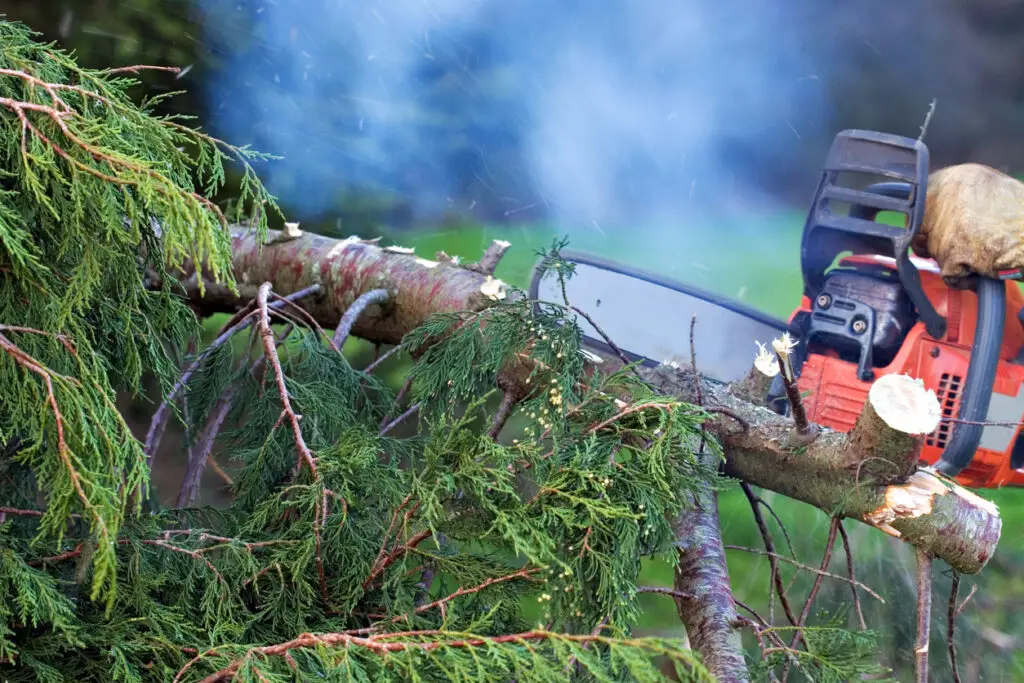
The possible causes for this situation will be explained in detail to ensure your safety and the longevity of your chainsaw.
Why is my chainsaw smoking?
A chainsaw is a powerful tool that can be used for cutting and trimming trees, branches, and wood. However, seeing that your chainsaw is smoking can be concerning and indicative of a problem.
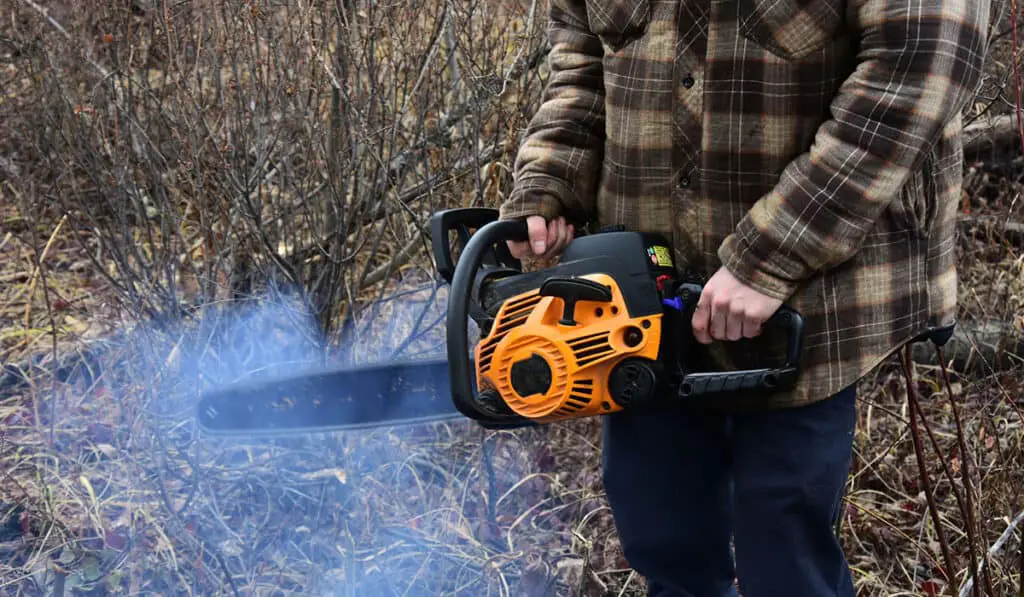
Chainsaw smoke suggests that something within the chainsaw is not functioning properly and can be due to several reasons, these reasons are explained below.
Oiling issues
A chainsaw’s ability to operate effectively heavily depends on lubrication. To reduce friction and heat created during cutting, chainsaws use a chain and bar system that requires periodic oiling. Oil is applied to the bar and chain to lessen deterioration, improve cutting effectiveness, and increase the lifespan of these components.
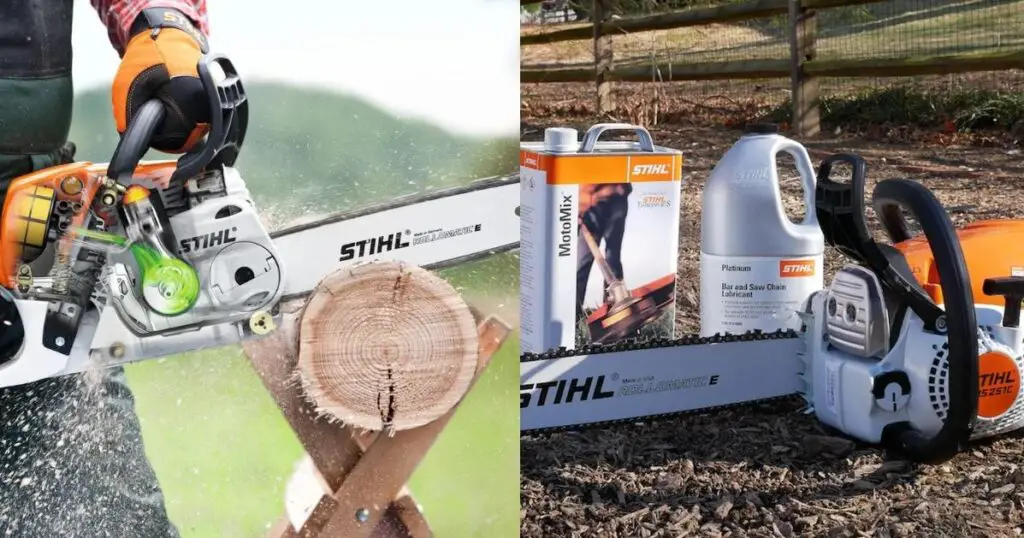
A chainsaw’s chain moves at a very high speed, and it can get heated if it isn’t properly lubricated, increasing friction, wear, and the possibility of injury.
Oil is used to reduce friction and prevent overheating by forming a lubricating coating between the chain and the bar.
Users can sometimes overestimate the required amount of oil and add too much oil to the chainsaw, believing that much oil will provide better lubrication.
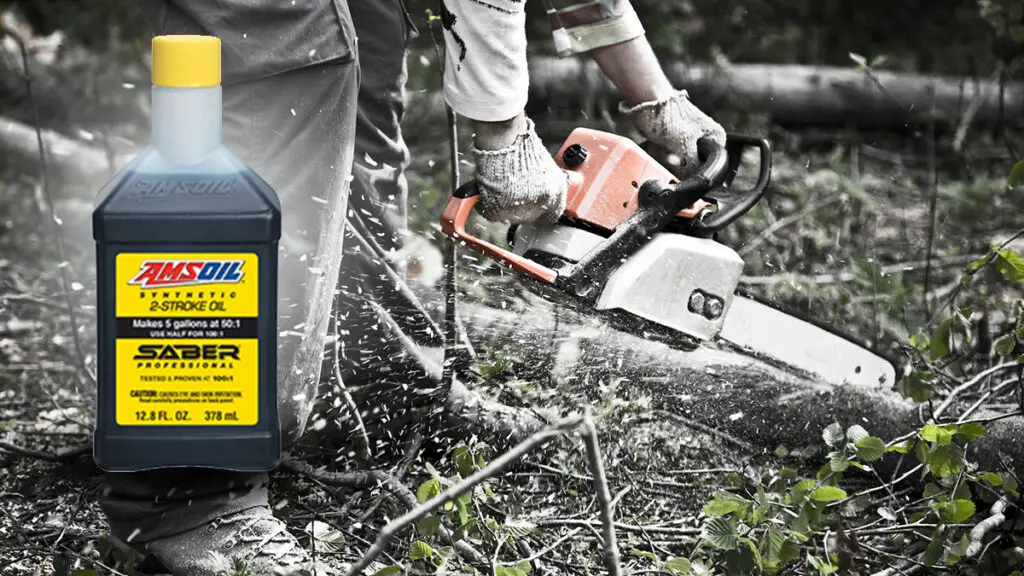
Incorrect adjustment of the oiling system, such as setting the oiler to a high flow rate, can lead to an excess of oil being dispensed onto the chain and bar.
Sawdust, debris, or other foreign objects piling up in the oil ports might restrict the oil flow, leading to uneven or excessive lubrication.
Seeing that your chainsaw is smoking is one of the most obvious indicators of excessive lubrication. On the bar and chain, the extra oil heats up and burns, then your chainsaw produces smoke and an unpleasant smell.
Excess oil can affect the performance of the chainsaw blade leading to inefficient cutting and potentially unsafe working conditions.
No airflow
A combustible mixture is produced in a chainsaw engine by mixing fuel and air that are drawn through the air filter.
The energy released as a result of this mixture being ignited in the combustion chamber powers the cutting chain and the piston of the engine.
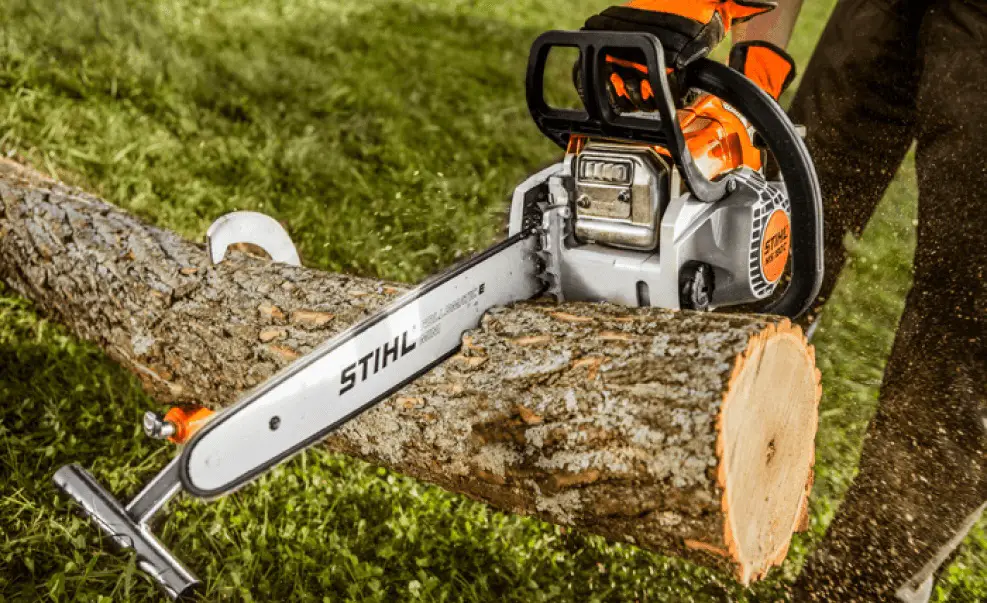
Sufficient airflow is essential for maintaining the ideal air-fuel ratio and fostering efficient combustion.
A carburetor that is not functioning correctly may not mix the air and fuel in the proper ratio, disrupting the combustion process and leading to chainsaw smoke. A common indicator of airflow problems is observing that the chainsaw is smoking.
Inadequate airflow can cause incomplete combustion of fuel, resulting in a smoking electric chainsaw.
You should leave the chainsaw once in a while and let it cool to prevent a smoking chainsaw.
Lack of air supply from an uneven air-fuel mixture can reduce engine power and impair cutting ability.
Ineffective combustion brought on by airflow issues can have an impact on chainsaw fuel economy, causing the saw to use more fuel than is necessary.
Dull or tight chain
Sharp cutting teeth on a chainsaw chain are used to remove particles from wood when cutting. The performance and effectiveness of the chainsaw rely heavily on maintaining a sharp chain.
A sharp chain guarantees swift and precise cuts lessens engine stress and increases chain longevity.
A dull chain makes the chainsaw less effective since it needs more force to cut through wood.
The additional effort needed may make the engine work harder, which could cause overheating and then chainsaw smokes.

Due to ineffective cutting, dull chains generate more debris and sawdust. These particles may build up on the chain, obstructing the oiling apertures and preventing effective lubrication leading to the chainsaw smoking.
Excessive tension causes the chain to bind against the guide bar, increasing friction during operation.
This heightened friction generates heat and can cause the dull chain and chainsaw bar to overheat.
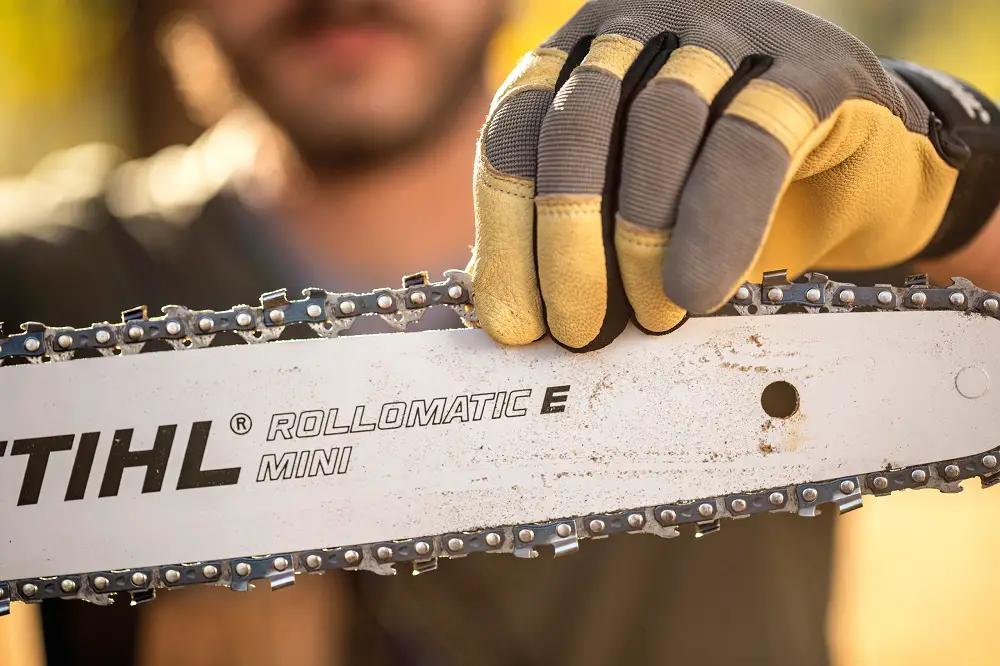
When the chain is dull there is a higher chance of the chainsaw overheating and causing a smoking chainsaw.
Overly tight chains cause unnecessary stress on the chain, guide bar, and sprocket especially on a new chainsaw.
A tightly tensioned chain can impede the smooth movement of the chain along the guide bar, reducing cutting efficiency.
The chainsaw may struggle when cutting wood, causing the engine to work harder, and eventually, the chainsaw produces smoke.
Misadjusted idler
By supporting and directing the chain’s rotation around the guide bar, the idler aids in maintaining the proper tension in the chain.
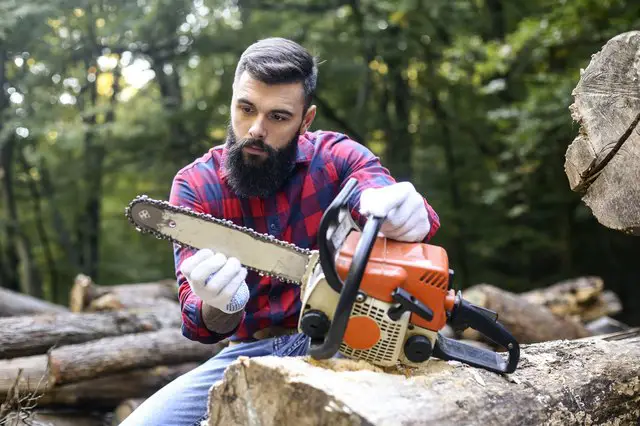
Proper tensioning is necessary for safe and effective cutting to make sure the chain fits snugly and operates without difficulty.
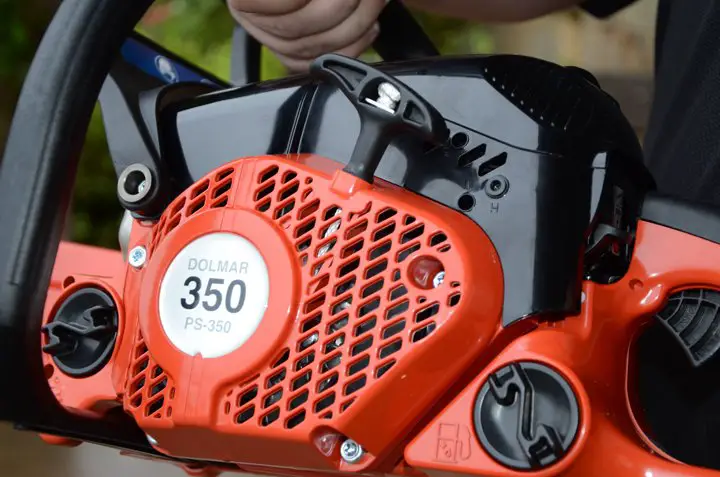
If the idler is not properly set or aligned during the first assembly of a new chainsaw or after maintenance, it may result in a misadjusted idler.
A misadjusted idler may result in inadequate or excessive chain tension, especially in a new chainsaw.
Inadequate tension can cause the chain to become loose, while excessive tension can strain the chain and other components
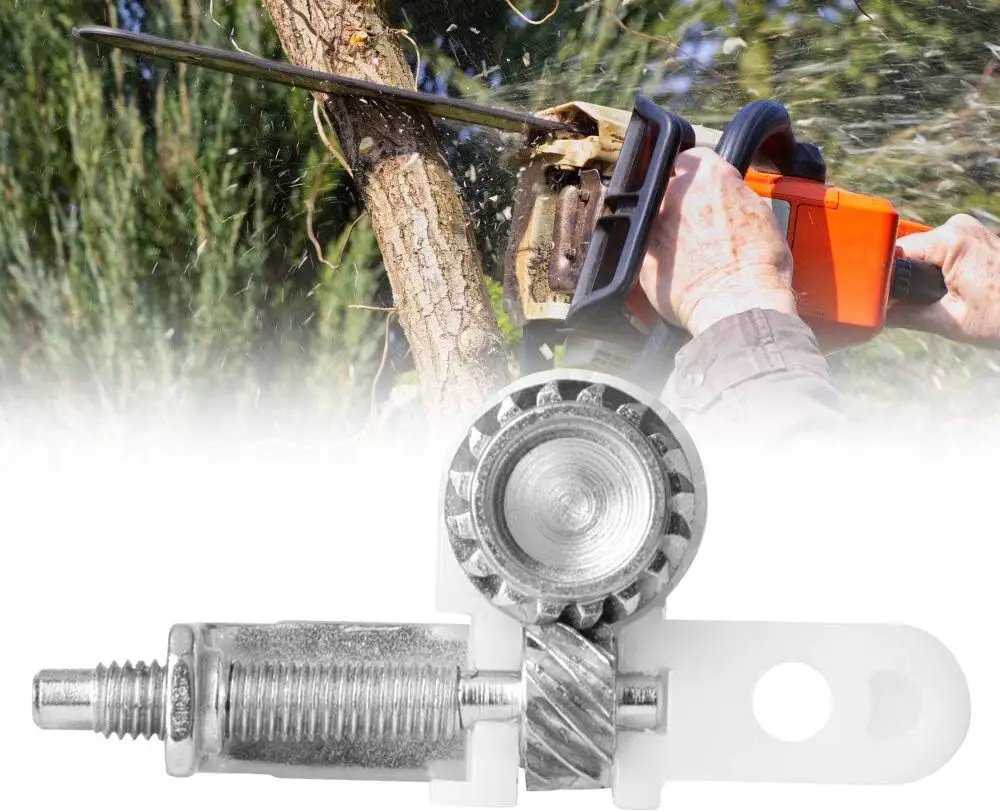
An improperly adjusted idler can cause the chain to rub against the guide bar or other parts of the chainsaw.
This increased friction generates heat, leading to the burning of oil residue on the bar, resulting in chainsaw smoking.
A misaligned idler can increase friction, which can lead to greater heat buildup in the chainsaw’s parts.
Overheating can damage critical parts and lead to a breakdown of the lubrication system, exacerbating the chainsaws smoke.
Dirty air filter
A chainsaw’s air filter plays a crucial part in preserving the health and efficiency of the engine. Its primary function is to trap dust, debris, and other particles present in the air before it enters the engine.
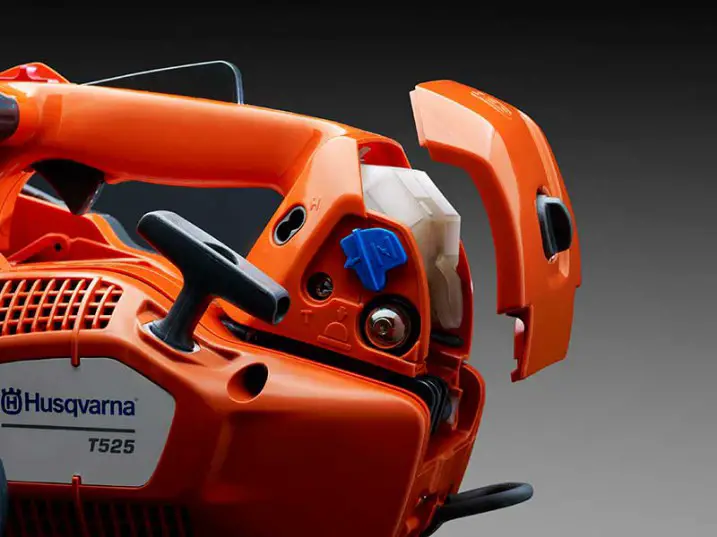
A clean air filter ensures a steady and appropriate air-to-fuel ratio, which is essential for the engine to operate efficiently.
The air filter in a chainsaw can become clogged and unclean over time due to the buildup of dust, sawdust, pollen, and other airborne particles over time.

Accumulated debris on the air filter restricts the airflow to the engine leading to incomplete combustion and the chainsaw smokes eventually.
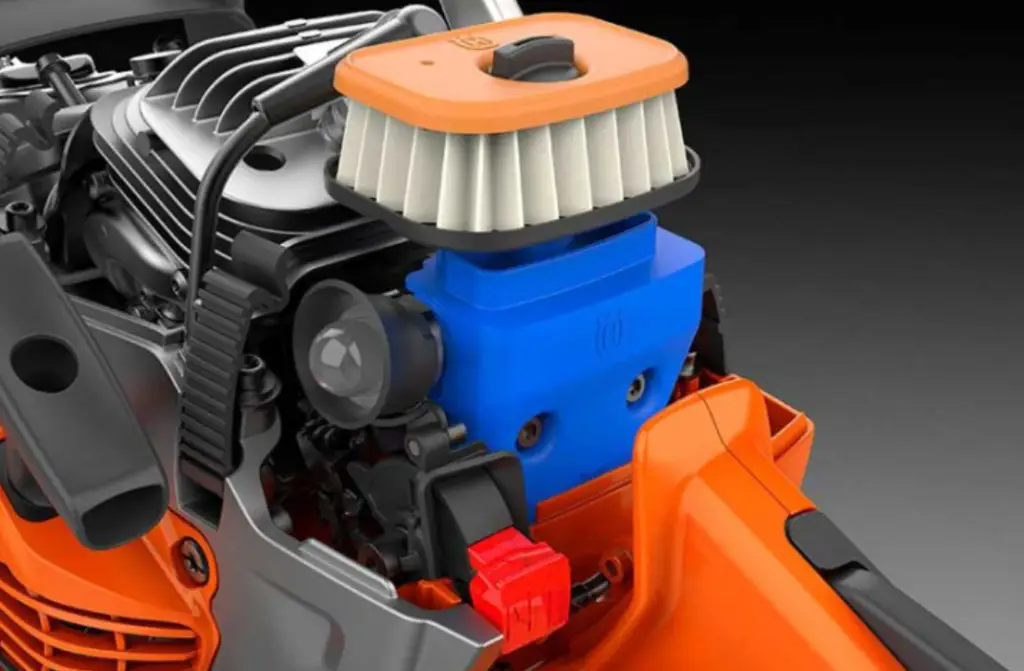
Insufficient airflow disrupts the air-fuel mixture’s proper ratio which is controlled by the low-speed adjustment screw due to a blocked air filter.
If the low-speed adjustment screw is set too rich it can lead to the emission of exhaust smoke or even black smoke.
A clogged air filter may cause the engine to receive less air, causing it to run hotter than usual. The oil on the chain and bar may heat up and smoke if there is too much oil or too much heat.
How do I keep my chainsaw cool?
- Proper lubrication. Proper lubrication is important to minimize friction between the chain and the guide bar while cutting. The chain moves more easily and produces less heat when it is properly oiled. Regularly check the oil reservoir and bar oil level to make sure it is adequately filled, avoid applying too much oil or bar oil, and use the recommended type and quantity of oil as specified by the manufacturer.
- Avoid overloading. Refrain from overloading because doing so can lead to your chainsaw smoking. Keep the chainsaw from being pushed through wood that is too dense or hard for it to handle. You could strain the tool and make it heat up quickly by placing an excessive demand on the engine
- Check for leaks. Regularly inspect your chainsaw for any fuel or oil leaks. Leaks can not only waste valuable resources but also lead to inefficient combustion, increasing the engine’s temperature. Address any leaks promptly and fix them to ensure optimal fuel and oil usage, contributing to a cooler-running chainsaw.
- Regular inspections. Check your chainsaw frequently for any indications of wear, damage, or irregularities. Clean the cooling fins and make sure they are not obstructed for efficient heat dissipation. Keep the chainsaw’s tension at the proper level to avoid placing undue strain on the engine.
FAQ
What causes a chainsaw engine to smoke?
A smoking electric chainsaw is most likely due to a blocked air filter, make it a habit to check the filter before each use.
What causes a chainsaw to overheat?
A chainsaw can overheat due to several reasons, these reasons include a blunt chain or the lack of airflow in the electric chainsaw.
Can you over tighten a chainsaw chain?
Yes, it is possible to over-tighten the chain of your chainsaw, this should be avoided as it could cause your chain to break.
Why does my chainsaw stall when I give it gas?
Your chainsaw stalling means that the flow of fuel in your chainsaw is hindered, inspect your fuel filter and fuel tank regularly to avoid this issue.
What causes a chainsaw to smoke excessively?
Excessive smoke coming from your electric chainsaw is likely because there is more oil than required in the fuel mix.
Why is white smoke coming out of my chainsaw?
Your chainsaw can bring out white smoke as a result of burning excess oil or if the oil-to-gas ratio is too high.
Why does my chainsaw chain go blunt?
A chainsaw chain can go blunt if it comes into contact with hard surfaces such as rocks, metal, or the ground during use.
Conclusion
Identifying the cause of smoke in your chainsaw is crucial for maintaining the chainsaw’s functionality and ensuring a safe working environment. By using this article as a guide and properly maintaining your chainsaw you can increase its longevity and enjoy an amazing, smooth, and smoke-free operation.

